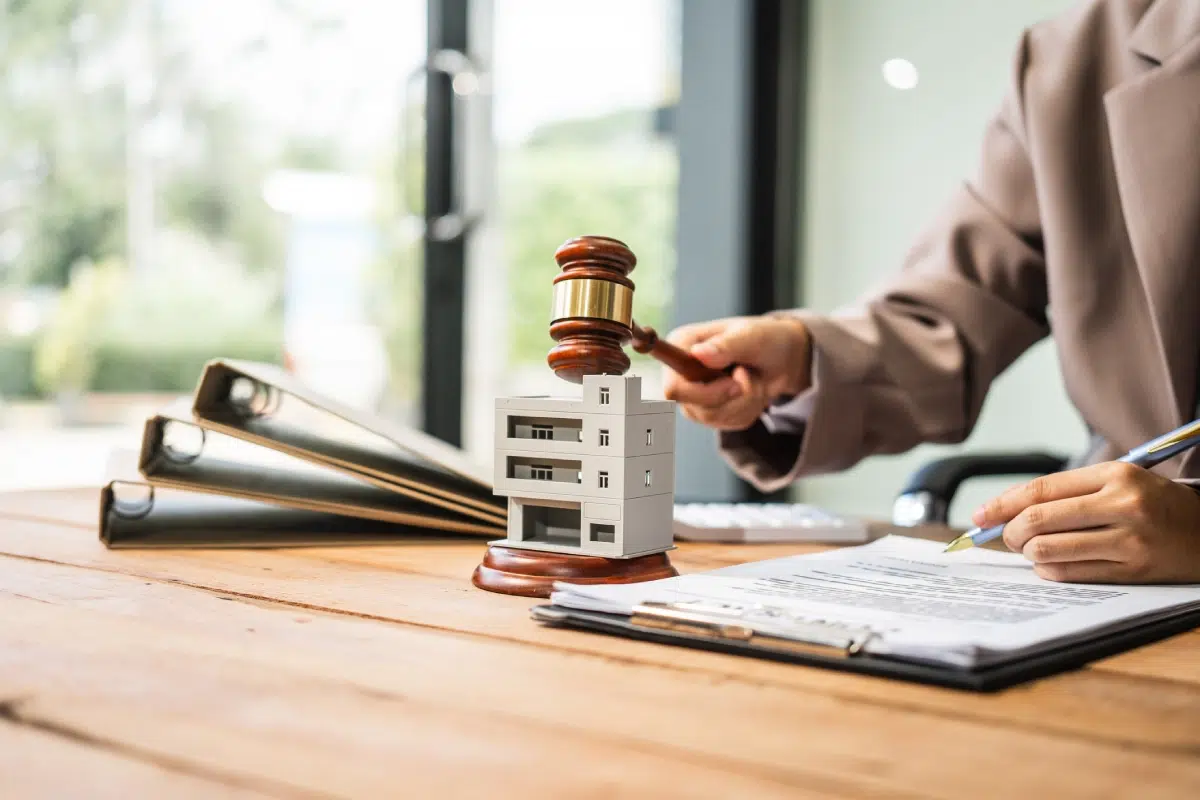Many property owners hope to transfer their property to their children or other loved ones after their death. It might seem like the simplest way to do so is to leave the home or other property to a specific loved one in the will. However, doing so means your beneficiary must wait for the lengthy probate process to conclude before gaining control of the property.
What are lady bird deeds? Florida offers you this easy, convenient estate planning tool for passing property down to loved ones. But is a lady bird deed right for you? Here’s a closer look.
What Is a Lady Bird Deed in Florida?
A lady bird deed — technically known as an enhanced life estate deed — is an estate planning tool that lets you pass down ownership interests in your home after your death. However, while these deeds allow you to name a beneficiary of the property, they do not restrict your right to maintain control of the property during your lifetime. You may sell or mortgage the property if you wish, and you can even cancel the lady bird deed or choose another beneficiary.
Upon your death, the subject property of the lady bird deed passes to your beneficiary without having to first go through probate court. Essentially, a lady bird deed is the homeownership equivalent of a bank account with a pay-on-death designation.
If you want to make sure your lady bird deed will be honored by the courts, you should consult with an experienced estate planning attorney. However, it can be helpful to be familiar with some of the key elements of a lady bird deed:
Grantor/Life Tenant
Typically, someone who creates a lady bird deed is both a grantor and a life tenant. A grantor is someone who authorizes and signs the deed, and a life tenant is a person who owns and controls the property up until the point of their death.
Remainder Beneficiaries
Sometimes referred to as “remaindermen,” these are the people who inherit the property after the property owner’s death. When you create a lady bird deed, you can designate one remainder beneficiary or more than one.
Formal Legal Description of Property
In order to avoid any confusion over the subject property, every Florida lady bird deed requires you to include a highly detailed description of the real estate property. The description also must be consistent with your county’s property records.
Homestead Provision
In Florida, if your home qualifies as a homestead property, the owner can save money on property taxes. The home will also be protected from forced sale by creditors. In order to qualify as a homestead property, your home must fall within certain size limits and other criteria. It also must be your primary residence.
When you create a lady bird deed, you should always include a clause clarifying that you will retain the homestead exemption.
Benefits of Using a Lady Bird Deed
For those interested in lady bird deeds, Florida offers a wide range of benefits. Here are some of the primary advantages of lady bird deeds.
You Can Avoid Probate
With a Florida lady bird deed, the ownership interest in your property transfers to your remainder beneficiary (or beneficiaries) without having to go through probate. The probate process can be stressful, expensive, and time-consuming, so if you can help your grieving loved ones avoid it, that’s a great benefit.
You Don’t Have to Pay Gift Taxes
Because lady bird deeds transfer property after your death (and the deed itself can be revoked), establishing a remainder beneficiary is not considered a gift. As a result, you do not have to pay gift taxes.
You Keep Control of the Property
With a Florida lady bird deed, you retain control of your property throughout your lifetime. You’re also entitled to the tax advantages the state grants homestead properties.
You Keep Medicaid Eligibility
For the purposes of Medicaid eligibility, naming a remainder beneficiary does not count as an asset transfer, so creating a lady bird deed will not impact existing eligibility.
You Have Complete Flexibility
Creating a lady bird deed does not mean you’re locked into it. Because the life tenant retains complete control of the property, you can name different remainder beneficiaries or revoke the deed entirely.
Disadvantages of Lady Bird Deeds
Like any other estate planning tool, lady bird deeds have their disadvantages, too. Here’s a look at some of the potential downsides.
Potential for Conflict
A lady bird deed allows you to leave the property to multiple remainder beneficiaries. However, if you do this and the beneficiaries don’t get along, it may lead to a complex dispute.
Incomplete Shielding from Creditors
A Florida lady bird deed can protect you from many different situations, but it cannot protect against creditor liens. However, if the property is a homestead property, creditors cannot seize and sell the home during your lifetime.
Steps to Getting a Lady Bird Deed
Fortunately, the process of obtaining an enhanced life estate deed is fairly simple. Here are the main steps you need to take:
- Draft a deed, making sure it meets all legal requirements
- Have the deed notarized and witnessed
- File it with your county’s registrar of deeds
Technically, you can draft and file a Florida lady bird deed yourself. However, even a simple error can mean the deed is invalid under Florida law. It’s essential to work with an estate planning lawyer to make sure you include the necessary clauses to protect your rights and that the deed is properly filed.
Lady Bird Deed vs. Other Estate Planning Tools
Florida lady bird deed statutes outline the many benefits of enhanced life estate deeds. However, these are far from your only estate planning options. Here’s a look at how these deeds compare to other tools.
Traditional Life Estates
With traditional life estate deeds, you do not have the same flexibility as you do with lady bird deeds. You cannot sell or mortgage the property without the beneficiary’s consent, and you can’t cancel the deed or change beneficiaries.
Revocable Living Trusts
Like lady bird deeds, revocable living trusts offer great flexibility. However, because they are more costly and complex to set up, revocable living trusts are best if you have significant assets in addition to your home.
Irrevocable Living Trusts
These trusts can’t be changed once they’ve been established. As a result, they can provide superior protection from creditors. However, because you lose control of the assets you put in the trust, irrevocable living trusts are usually best for assets other than your primary residence.
Quitclaim Deeds
Quitclaim deeds immediately transfer ownership of your property. Unless you are moving elsewhere, quitclaim deeds often aren’t practical estate planning tools.
When Would a Lady Bird Deed be Useful?
As one of the few states with a lady bird law, Florida gives homeowners a useful estate planning tool. However, an enhanced life estate deed may not always be the right choice. Here are some instances in which a lady bird deed might be right for your estate plan:
- You want to minimize the cost of an estate plan
- Avoiding probate is a primary concern
- You want to ensure your loved ones can receive your property soon after your death
- You want to preserve your existing Medicaid eligibility
- You want to be able to pick a beneficiary without losing any control as a property owner
- You want to have the option to change beneficiaries or revoke the deed
Keep in mind that every estate plan is different. The best way to determine whether a lady bird deed may be right for you is to talk to an experienced estate planning attorney.
Medicaid Planning With Lady Bird Deeds
Many people understandably worry about how property transfer may impact their eligibility for Medicaid benefits. Fortunately, a lady bird deed allows you to preserve existing Medicaid eligibility while also protecting the home from being subject to Medicaid estate recovery.
In Florida, there is a five-year “lookback period” for assessing Medicaid eligibility. If you give away assets or sell them for far less than the fair market value, Medicaid will consider that a transfer of assets — and that disqualifies you from coverage. However, because Florida does not consider a lady bird deed to be a gift, leaving your home to a loved one via a lady bird deed will not make you ineligible. Note that the equity value of the home must be considered against current Medicaid eligibility thresholds.
Florida may try to recoup the costs of medical care for Medicaid recipients by attempting to recover assets from their estate after death. However, they may only seize assets that are part of the decedent’s probate estate.
Because Florida lady bird deeds let you avoid probate, the home is protected from Medicaid estate recovery so long as its value meets the threshold requirements. That ensures your loved ones will inherit your home just as you intended.
Tax Implications of Lady Bird Deeds
Lady bird deeds are attractive to many people partly because of the tax advantages they offer:
- The step-up in basis after your death reduces capital gains taxes for beneficiaries
- You still maintain your homestead exemption for tax purposes
- Beneficiaries don’t have to pay income tax on the property they inherit
- Because property transfer takes place after your death, there is no gift tax implication for you
However, these deeds do have some negative tax consequences. The primary consequence is that they do not protect your loved ones from estate taxes. Your beneficiaries also do not automatically keep the homestead exemption. That means if a beneficiary doesn’t qualify for the exemption, they might have to pay much higher property taxes than you had to pay in your lifetime.
Civil Judgments and Liens
A lady bird deed has many advantages, but it may not be ideal if you think you may pass away when there is a significant lien on the property. Creditors can still put a forced lien on your home, but as long as you qualify for Florida’s homestead exemption, those creditors cannot force a sale of the property during your lifetime.
However, while creditors may not be able to take your home during your lifetime, that doesn’t mean the lien disappears. After your death, creditors may be able to seize and sell the property to recoup what they’re owed.
Frequently Asked Questions
Does the Beneficiary of a Lady Bird Deed Have to Wait for Probate Before Taking Over the Property?
No. One of the main benefits of this estate planning tool is the fact that it prevents the home from having to go through probate after your death. That means the beneficiary can quickly assume ownership.
Is a Lady Bird Deed Better Than a Living Trust?
The answer to this question depends on your unique circumstances. However, because a lady bird deed tends to be both less expensive and less complicated than a living trust, many property owners decide it’s the best option for passing property down to loved ones. Often, a lady bird deed is used in conjunction with a living revocable trust, rather than as an alternative.
Can I Cancel a Lady Bird Deed if I Change My Mind?
Yes. If you have a lady bird deed, Florida gives you the option to completely cancel the deed or change your beneficiary as long as you’re alive.
What’s the Difference Between a Lady Bird Deed and a Quitclaim Deed?
Both of these deed types allow you to transfer your property to a beneficiary, but the circumstances of that transfer are very different. A lady bird deed lets you retain control of your property until your death. A quitclaim deed immediately transfers the property to your beneficiary.
What’s the Difference Between a Lady Bird Deed and a Traditional Life Estate Deed?
A traditional life estate deed is irrevocable. If you decide you want to remortgage the property, sell it, or make significant changes, you must secure the permission of the beneficiary in order to do so. With a lady bird deed, you have complete control of the home until your death. That means you can sell or mortgage the property if you wish, and you can also change beneficiaries or cancel the lady bird deed entirely.
The contents of this article are not comprehensive, they provide only a general overview of the subject matter discussed. This article does not establish a client-attorney relationship with the reader, and no legal decisions should be made based on the article’s contents. Because every legal matter arises under unique facts specific to the client, no legal decision should be made without consulting a licensed attorney.



